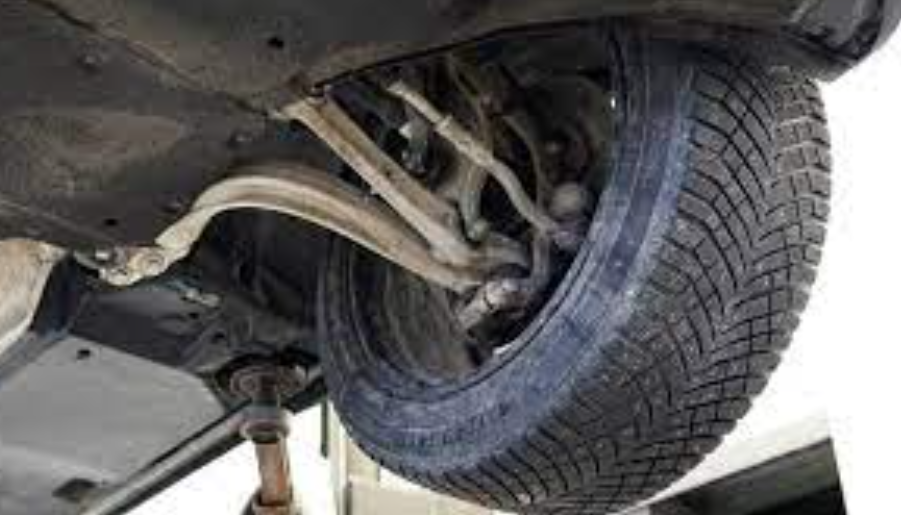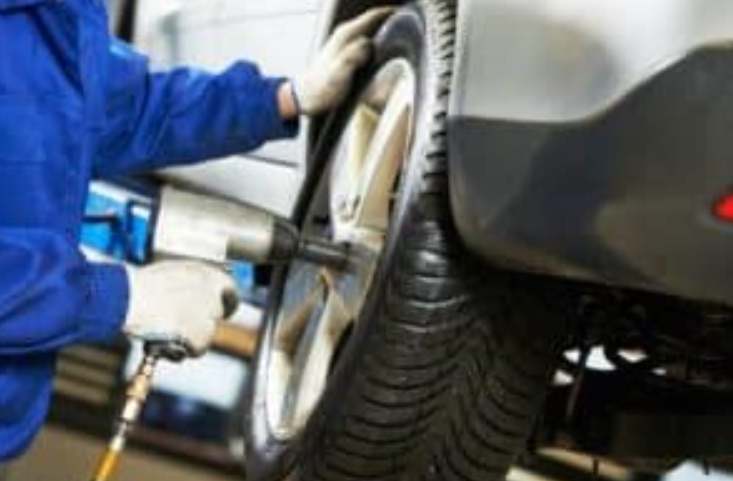Imagine cruising down the highway, relishing the serene ambiance, and suddenly, you’re perturbed by a jarring noise from your vehicle’s front tire. This unsettling feeling is shared by many. Tires are foundational to a vehicle, serving as the primary liaison between the car and the terrain. Hence, maintaining their health is non-negotiable. If you find your front tire making loud noise when driving, it’s a clarion call to assess and rectify the underlying issue. Through this article, we aspire to unravel the mystery behind these perplexing sounds and offer pragmatic solutions.

Understanding Tires and Their Construction
A tire is not just a circular rubber; it’s an intricate fusion of materials and design. Predominantly, it consists of the tread that grips the road, steel belts for stability, and an inner lining ensuring durability. As with any machine, each component has a pivotal role. When compromised, these parts can resonate unique noises. For instance, an eroded tread might lose its grip, and every rotation could then echo a disturbing noise, especially if it’s the front tire making loud noise when driving.
Common Noises and Their General Causes
When you drive, your tires become your storytellers. By vocalizing various sounds, they hint at underlying issues. Let’s demystify some of these sounds:
- Roaring or Humming: Often indicative of irregular wear patterns. If your tires are not aligned properly, they might wear unevenly, resulting in these sounds. It’s like a shoe sole wearing out irregularly and affecting your walk.
- Clicking or Ticking: Imagine walking with a small stone in your shoe. Just as it would trouble you, pebbles or debris trapped in tire treads can cause these noises. Also, if a wheel component is not tightened enough, it might produce a similar ticking sound.
- Thumping or Bumping: If parts of your tire have become deformed or raised, it might create these thudding noises. It’s akin to walking with a bulged shoe sole.
- Squealing or Screeching: Just as shoes can skid on a slippery surface, tires too can skid, especially during sudden turns or due to brake issues, leading to these high-pitched noises.
In-depth Analysis of Roaring Noises
A roar from your tire can be as unsettling as a roaring stomach, hinting at an underlying problem:
- Alignment Issues: Misaligned tires don’t wear evenly. Imagine walking in misaligned shoes; it would be uncomfortable and noisy, wouldn’t it? Similarly, misaligned tires can produce roaring noises.
- Uneven Tire Wear: If you neglect tire rotations or fail to fix suspension issues, it might lead to uneven wear. This affects the tire’s grip and noise levels.
- Tire Balance: Imagine a washing machine that’s imbalanced during a spin cycle. It’s noisy and dances around. Similarly, an unbalanced tire can produce roaring sounds, especially at high speeds.
- Tire Pressure: Over or under inflating your tire can change how it contacts the road, similar to wearing over-inflated or deflated shoes. This can cause roaring sounds.

Specific Issues Leading to Front Tire making Loud Noise when Driving
Like a symphony with discordant notes, specific components can disrupt the harmony:
- Damaged Wheel Bearings: As bearings wear down, they can cause a noise that escalates with speed, like a machine that’s rusty.
- Faulty Suspension Components: If the struts or shocks that cushion your ride are worn out, they can lead to excessive bouncing of the tires, producing thumping sounds.
- Damaged Brake Components: Worn-out brake pads or warped rotors can produce screeching sounds, similar to the sound of metal scraping against metal.
- Foreign Objects: Just as a tiny pebble in a shoe can be bothersome, pebbles or other debris in tire treads can cause ticking noises.
Impact of External Factors
The external world can play its own tunes on your tires:
- Road Conditions: Rough terrains or roads filled with potholes can make tire noises more noticeable, just as walking on an uneven path can be noisy.
- Weather Conditions: Cold can make rubber harder and noisier, while wet conditions can create a risk of hydroplaning, leading to specific noises.
- Driving Habits: Aggressive driving or sudden maneuvers can wear out tires faster, making them noisier.
Diagnosing the Problem: A Step-by-Step Guide
Identifying the issue is like solving a mystery:
- Visual Inspection: Look for obvious signs of wear, damage, or objects lodged in the tires, akin to inspecting a shoe for damage.
- Auditory Clues: Listen to the noise. Is it constant? Does it change with speed? Such clues can hint at the root cause.
- Specialized Equipment: Just as you might use a foot measure before buying shoes, use pressure gauges or tread depth tools for tires.
- Professional Inspections: Sometimes, it’s best to consult the experts. Just as you might see a foot doctor for foot pain, see a mechanic for tire noises.

Solutions and Fixes for Front Tire making Loud Noise when Driving
Once diagnosed, it’s time for treatment:
- Immediate Remedies: Remove any trapped objects or adjust tire pressure.
- Long-term Solutions: Consider wheel alignments, rotations, or part replacements, like getting a shoe sole replaced.
- Professional Services: Some issues need a mechanic’s expertise.
- Regular Maintenance: Prevent future issues with routine check-ups, like regular shoe maintenance to extend their life.
Safety Concerns Associated with Tire Noises
Neglecting tire noises is as risky as ignoring severe foot pain. A failing tire can cause accidents. Just as the health of your feet is crucial for your well-being, tire health is crucial for safe driving.
Conclusion
The significance of tires can’t be overstated. Their state and performance directly impact vehicular safety and efficiency. Thus, at the onset of unusual sounds, especially from the front tire making loud noise when driving, it’s imperative to act swiftly. Regular inspections and mindful driving practices can curtail risks and ensure a harmonious drive.
FAQs
Is it safe to drive with a noisy front tire?
It’s contingent on the root cause. Consult a mechanic before making any decisions.
How long can I drive before addressing the tire noise?
It’s prudent to attend to it without delay to avert potential hazards.
What’s the difference between front and rear tire noises?
The source may vary, but the nature and causes are largely analogous.
Can improper tire storage lead to increased noise when driving?
Absolutely. Incorrect storage might cause tires to develop uneven areas, leading to thuds during rotation.
How often should I rotate my tires to prevent uneven wear?
Generally every 6,000 to 8,000 miles, but always refer to your vehicle’s guidebook.